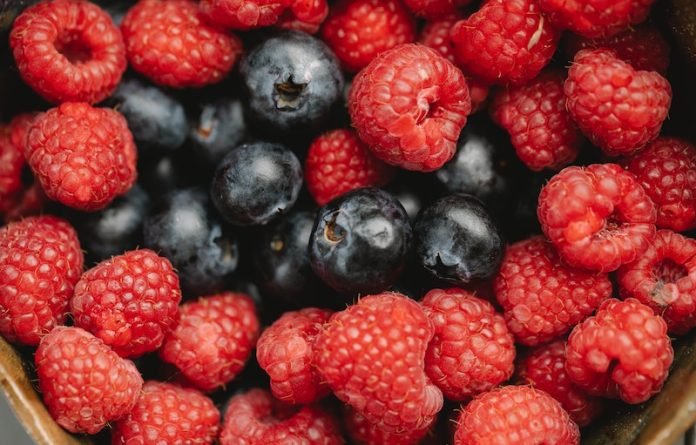
A new study from California Polytechnic State University Humboldt has found that consuming one cup of wild blueberries a day may help burn fat during exercise.
While wild blueberries have long been hailed as a superfood, this is the first study to examine the fruit’s fat-burning effects during exercise in non-elite athletes.
The study tested 11 healthy aerobically trained males who followed a diet that included consuming 25 grams of freeze-dried wild blueberries daily for two weeks.
Participants then exercised on a bike for 40 minutes, with urine and blood samples were taken before and after the cycling session.
The results showed that the participants burned notably more fat after consuming wild blueberries, with the fat oxidation rate rising by 19.7%, 43.2%, and 31.1% at 20, 30, and 40 min after cycling.
Overall, the research found that consuming roughly one cup of wild blueberries daily for two weeks increases the ability to use/burn fat during moderate-intensity exercise like cycling.
It is important for athletes as it accelerates fat burning while decreasing the use of carbohydrates.
The team found that wild blueberries may help accelerate fat oxidation, which is the process of breaking down fatty acids or burning fats for energy.
Burning more fat while using fewer carbs is significant for athletes, as it provides more fat stores to keep the body going for longer.
Wild blueberries are rich in anthocyanins, compounds that give fruits and vegetables their blue, red, and purple colors. The anthocyanins may be responsible for the increased fat oxidation observed in the study.
The team noted that the research shows the importance of natural carb sources. They explained that adding a natural carb source like wild blueberries increased fat oxidation during exercise.
While decreasing carb intake may lead to negative health and performance outcomes, adding wild blueberries is a healthier way to increase fat oxidation.
The wild blueberry research is ongoing, with another study involving both men and women set to take a closer look at the impact of wild blueberries at higher exercise intensity.
This new study will examine how wild blueberries impact athletes during a race versus a training session.
More about wild blueberries
Wild blueberries are a type of blueberry that grow naturally and are not cultivated. They are smaller and have a more intense flavor than their cultivated counterparts.
Wild blueberries are known for their numerous health benefits. Here are some of them:
Rich in antioxidants: Wild blueberries are packed with antioxidants, which help to protect the body against damage from free radicals. Antioxidants may also help to reduce the risk of chronic diseases such as cancer and heart disease.
May improve brain function: Some studies have suggested that consuming wild blueberries may improve cognitive function, memory, and mood.
May reduce inflammation: Wild blueberries contain anti-inflammatory compounds, which may help to reduce inflammation in the body. This may be beneficial for conditions such as arthritis and inflammatory bowel disease.
May promote heart health: Wild blueberries are a good source of heart-healthy nutrients such as fiber and potassium. They may also help to reduce blood pressure and improve cholesterol levels.
May aid in weight loss: Wild blueberries are low in calories and high in fiber, making them a good choice for people who are trying to lose weight.
May improve gut health: Wild blueberries contain prebiotic compounds, which help to promote the growth of beneficial gut bacteria. This may help to improve gut health and reduce the risk of digestive problems.
May promote healthy skin: Wild blueberries are a good source of vitamins and minerals that are important for skin health. They may help to improve skin elasticity, reduce the appearance of wrinkles, and promote a healthy glow.
Overall, consuming wild blueberries as part of a healthy diet may help to promote overall health and reduce the risk of chronic diseases.
If you care about wellness, please read studies about antimicrobial in toothpaste linked to inflammation and cancer in the gut, and vitamin B may help reduce inflammation.
For more information about health, please see recent studies about vitamin D deficiency linked to chronic inflammation, and tart cherry could help reduce inflammation.
The study was conducted by Kari D. Pilolla et al and published in Nutrients.
Copyright © 2023 Knowridge Science Report. All rights reserved.



